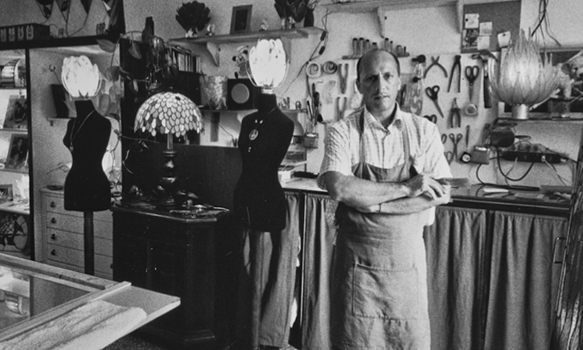Study for the development of a microcredit program for people who currently are, or have been, inmates at the Bologna prison.
Project completed (2015-2016)
Statistics have shown beyond reasonable doubt that prisoners serving time with an alternative measure have a very low recidivism rate (about 28%), while those serving their sentence in prison return to delinquency with a 68% chance (Leonardi, 2007).
These results are very impressive; however, they may be biased by the fact that it’s detainees with a lower risk of repeating an offense access to prison benefits, and they are selected based on a series of in-depth assessments based on their reliability.

© Gianni Berengo Gardin – Fondazione Forma per la Fotografia
On the other hand, it is more difficult to question data that shows a decrease in the rate of recidivism among detainees who are given the opportunity to work and learn a job during the years of imprisonment. Of these, only 10-12% is a repeat offender. In the experience of some social cooperatives this percentage was even reduced to 1%, where the alternative measure to the prison is accompanied by a reintegration in the workplace.
Data extracted from: “GD Padova” (Democratic Jurists), Report of the guidelines, 11/03/2010.
The implementation of a specific microcredit program for the prison population could be a winning strategy that can provide a concrete contribution to the reintegration of prisoners into the workplace and the interruption of the vicious cycle of recidivism. These programs are intended to directly involve the detainee in his personal reintegration process, starting from the assumption of responsibility and value in self-rebuilding. Support for the planning of training courses (educational and professional) focused on entrepreneurship within the prison would enhance the reformation function of the entire prison system and it would offer ex-convicts the opportunity to benefit from additional services guiding them towards autonomy and reintegration into the social and productive environments. The survey has shed light on the countless training initiatives initiated over the years by the prisons Dozza and IPM in Bologna, underlining how, sometimes, “the types of innovative paths offered in prisons are rather just passing and fragmented experiences” (Benelli 2008). By mapping training courses at Dozza and IPM prisons in Bologna several high-quality projects were highlighted; these offer professional skills that can be applied in the external work environment, also through the development of small business activities. Good practices include the RAEE project started in 2009, FID activated in 2012, the “Elbow to Elbow” tailor’s workshop started in 2010, Cultivating Citizenship launched in April 2014, Intra-Logos born in 2014. The project aims at the construction of a production chain that connects the prisoner to social and work environments, thus overcoming the limits and the criticalities that characterize the delicate step of being released from prison.
Multiple interviews were carried out during the research:
Valerio Monteventi, Doing business in Dozza (FID); Martino Colombo, Elbow to Elbow; Valerio Guizzardi, Papillon Rebibbia Association and Social Cooperative Croce Servizi; Dario Audiello, Center for Employment of the Province of Bologna; Gaetano Vuozzo, Prison help desk, Province of Bologna; Stefano Cuppini, Social Cooperative Cefal; Paola Piazzi, Poggeschi Center for Prisons; Armando Reho, Convicts office and PRAP Treatment Emilia Romagna.
Supervisor: Prof. Luisa Brunori
Researchers:
- Alice Bano
- Giorgia Bonaga
- Daniela Tuccio


